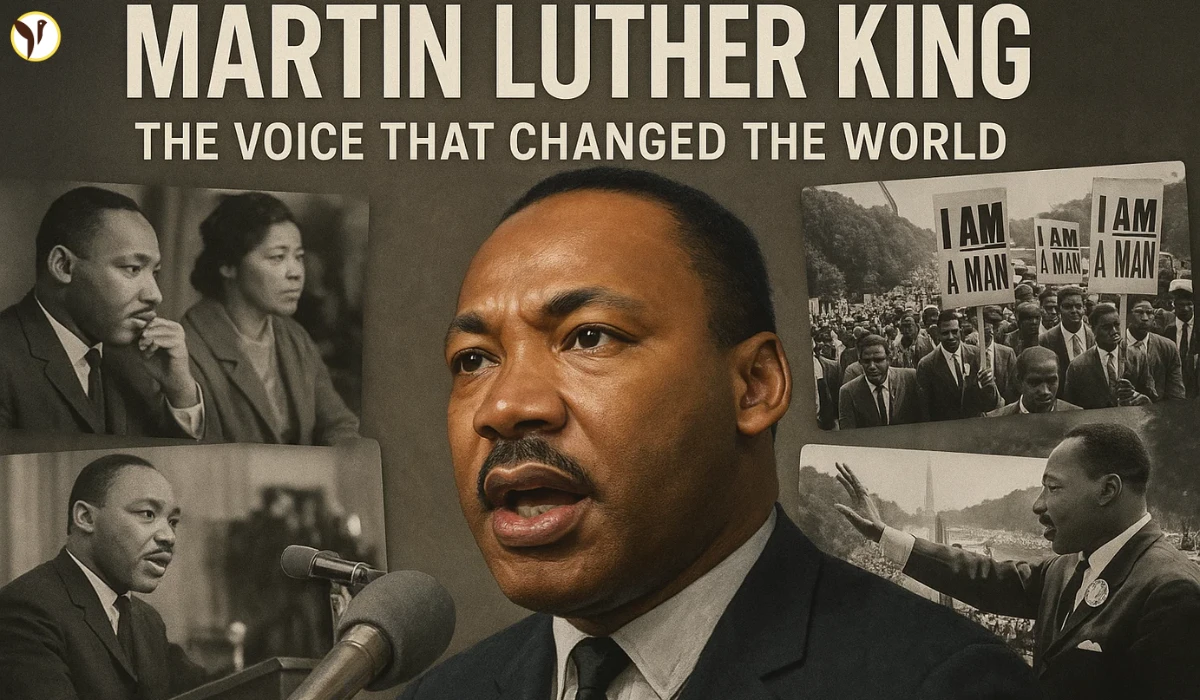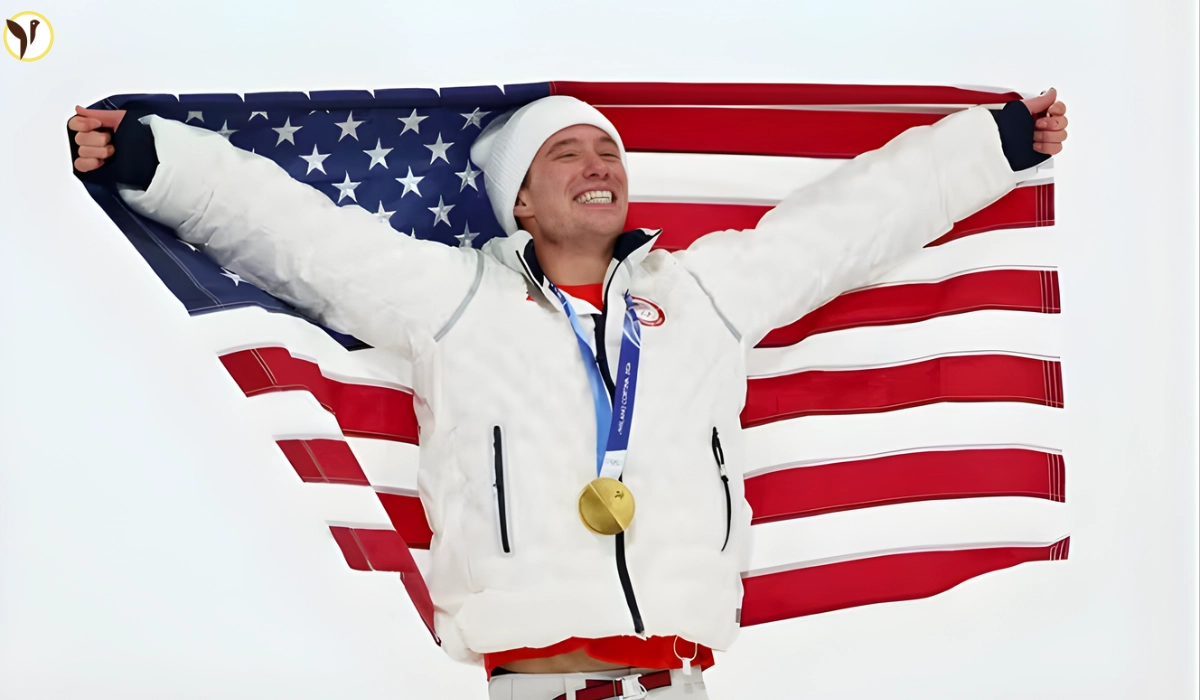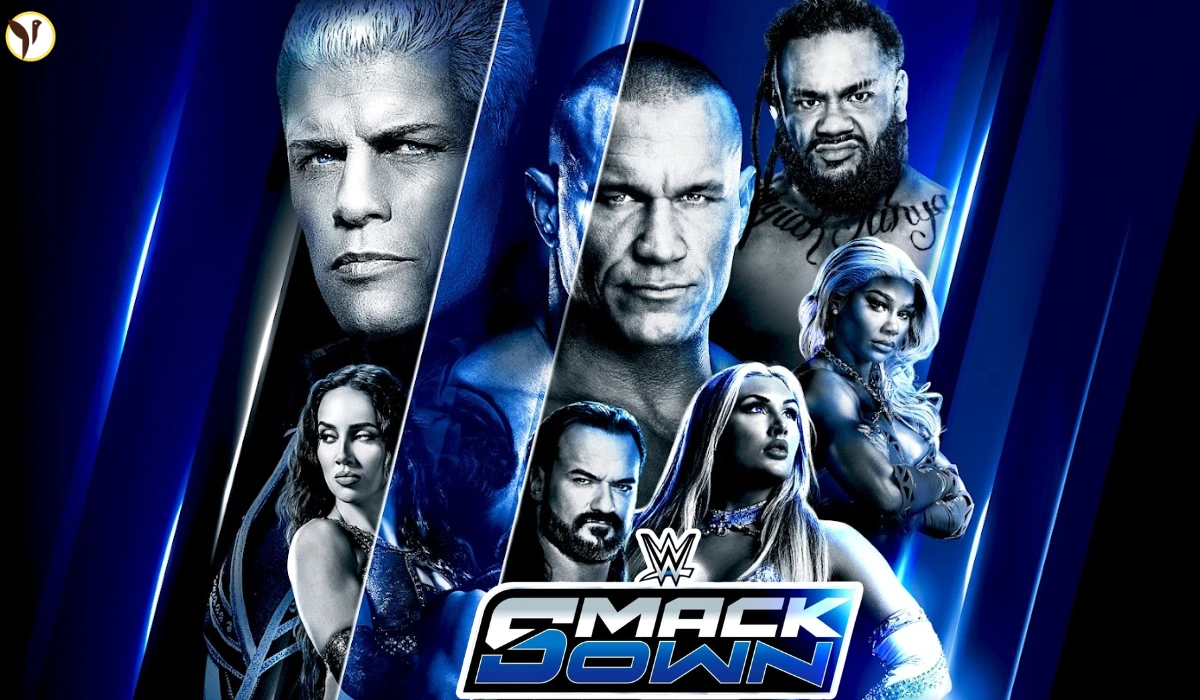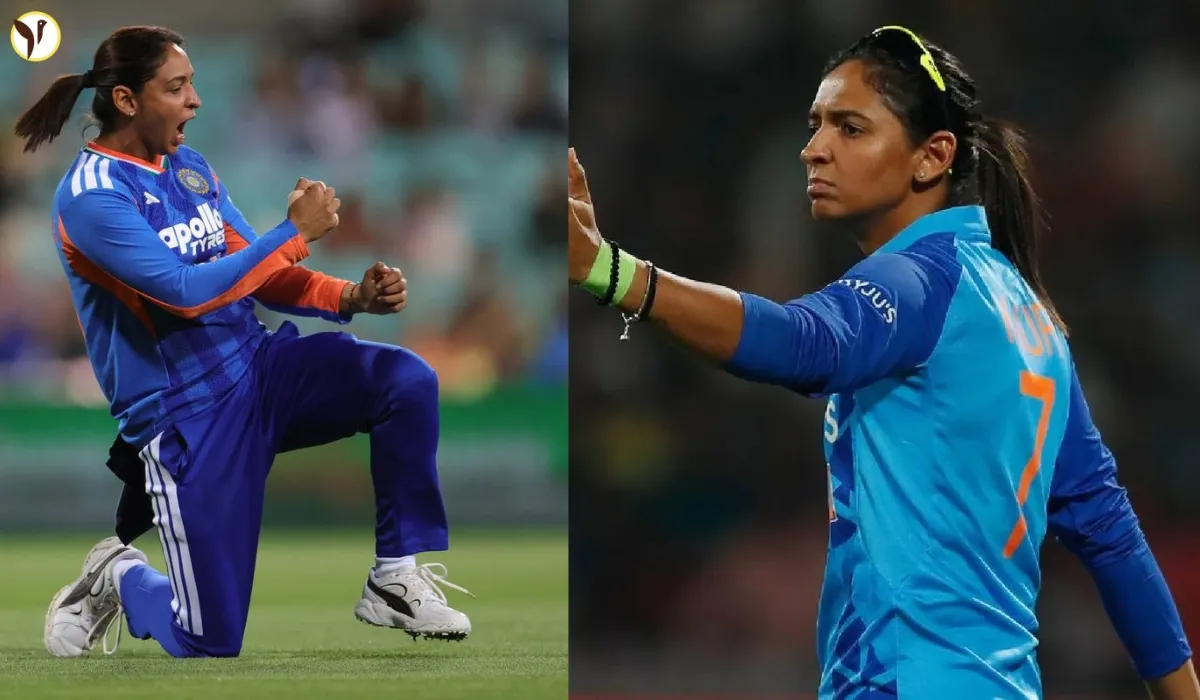Martin Luther King Jr. was born on January 15, 1929 in Atlanta, Georgia, which was a city that divided people by race. From the beginning, young Martin could see the injustice surrounding him. White children could not even go to school with black children, eat in the same restaurants, or even drink from the same water fountain.
His father Martin Luther King Sr. was a well-respected pastor and his mother Alberta was a school teacher. They instilled Martin with a strong sense of faith, dignity, and education, but the hurt of segregation education was always there.
One memory from childhood always haunted him after it happened: a white friend told Martin his mother and father said he could not play with Martin anymore because he was black. Experiences like that stuck with him forever.
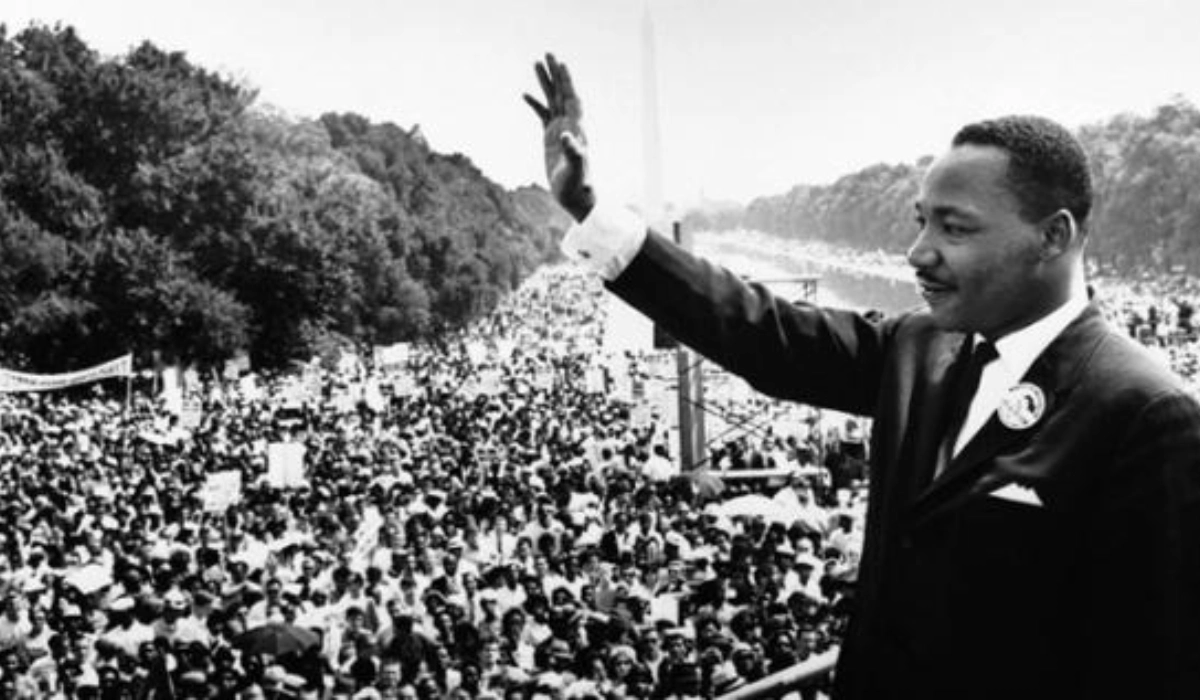
Education And Inspiration
Martin was an exceptional student. He attended Morehouse College, and then earned a PhD in theology at Boston University. The significant transformation in his life, however, took place when he discovered the philosophy of Mahatma Gandhi.
Gandhi's philosophy of non-violence taught King that peaceful protest could enact societal change. King himself said:
“Christ gave me the goals. Gandhi gave me the way.”
At that time, King resolved that he would not use violence or hatred in his struggle for equality, but love, courage and truth.
Rosa Parks And The Montgomery Bus Boycott
It was 1955. In Montgomery, Alabama, a Black woman called Rosa Parks refused to give her bus seat to a white passenger. She was arrested, and so her act of courage ignited a wildfire.
Martin Luther King Jr. was chosen to be the leader of the Montgomery Bus Boycott. Black residents refused to ride the buses for over a year. They walked to work, they pooled rides together, and they suffered.
They faced threats, bombs, and arrests, but King was undeterred. He believed without question, you could have change without violence. And finally, the U.S. Supreme Court ruled segregation on the buses illegal.
This victory made King a national leader.
The Dream That Moved The World
On 28 August 1963, more than 250,000 people gathered in Washington D.C. for the March on Washington for Jobs and Freedom. Standing in front of the Lincoln Memorial, Martin Luther King Jr. gave a speech that became immortal:
“I Have a Dream”
In that speech, he shared a vision of a world where:
-
Black and white children could play together.
-
Justice flowed like a river.
-
Freedom rang from every corner of America.
His words were not just a speech. They were music, poetry, and prophecy. Even today, when people hear “I Have a Dream,” it sends chills down their spine.
These idiots just elevated Charlie Kirk to the level of MLK.
— Hon. Number 9 🏁 (@numbern57323948) September 10, 2025
They just made him a martyr.
Historic pic.twitter.com/nrwG7j5Gx6
Struggles, Threats, And Jail
King's path wasn't always easy as he found himself arrested over 20 times. His home was bombed.
He lived in fear along with his family of threats all around him.
Many white leaders hated him. Many in the Black community thought he was too patient. But King would not give up this road of non-violence.
He reminded the world with these words:
"Hate cannot drive out hate; only love can do that."
Nobel Peace Prize
At the age of 35, Martin Luther King Jr. was the youngest person, at that time, to be awarded the Nobel Peace Prize in 1964.
Not only did the award honor King as a person but the idea he carried, which was that peace and love could defeat oppression. His influence now transcended the United States—his dream became the dream of the world.
A Life Cut Short
On April 4, 1968, while on the balcony of the Lorraine Motel in Memphis, Tennessee, Martin Luther King Jr. was assassinated. The world was rocked. Cities erupted in sadness and outrage.
But his death did not silence him. In a sense it gave volume to his voice. His dream did not die—it lived on in millions of hearts.
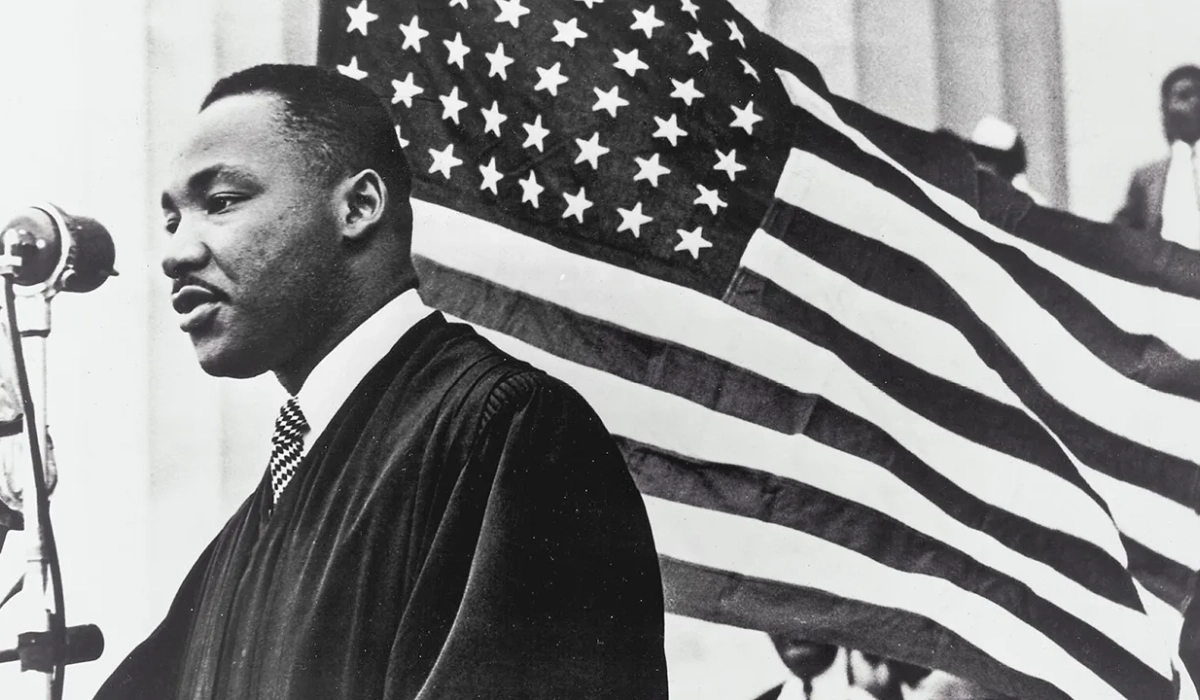
Legacy: The Voice That Still Speaks
Martin Luther King Jr. changed laws, but more importantly, changed minds.
The Civil Rights Act of 1964 also ended segregation in public places.
The Voting Rights Act of 1965 also entitled Black Americans to vote freely.
Schools and buses were also integrated.
But there was more to him than just laws; his most important accomplishment was demonstrating to all of the world that non-violence works.
And every year, on the third Monday of January, Martin Luther King Jr. Day is celebrated in America. His words are covered in schools, his speeches are cited in parliaments, and his name keeps inspiring generations for decades.
Why Indians Feel Connected To King
Indians have a unique connection to Martin Luther King Jr. because he was one of the few public figures to admit how much he was influenced by Mahatma Gandhi. In a 1959 trip to India, King said that he thought he was visiting his "spiritual home."
Sincerely or not, King used the same weapon against racism as Gandhi did against the British: non-violence. King not only became an American hero but a world leader.
Famous Quotes By Martin Luther King Jr.
"Injustice any place is a threat to justice everywhere."
"The time is always right to do what is right."
"Faith is taking the first step even when you don't see the whole staircase."
"Life’s most persisting and urgent question is, what are you doing for others?"
